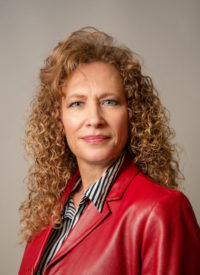The Medicare open enrollment period is in full swing and can be quite confusing. Enlisting the services of a Medicare insurance specialist can make all the difference in choosing the right plan for each enrollee’s specific needs.
Once you are enrolled in the plan that is best for you, it is very important to understand Medicares 3 day rule for any stay in a skilled nursing facility.
Medical needs are constantly changing for Medicare-eligible seniors. Sometimes care requires a simple visit to the doctor. In other cases, a person will need to be rushed to hospital, which may prolong their stay. Those who need continued care in a skilled nursing facility (SNF) after leaving the hospital may find it extremely confusing and difficult to navigate the maze of health care rules.
Medicares 3 day rule
Many seniors on Medicare understand that Medicare Part A is for hospitalization and Part B is for insurance coverage. So where does a skilled nursing facility land? Medicare’s 3-day rule relates to receiving care in a SNF. Medicare Part A will cover care in a SNF only if the person is first admitted to the hospital for three days. The key word here is admitted.
When a person with Medicare arrives at the hospital, they are assigned either admitted (in a patient) or under observation. This wording makes all the difference when it comes to the three-day rule. Medicare Part A will cover the SNF after the three-day qualifying period. This is not the case for part B.
The reason the wording is so important is because those who are under observation are classified as outpatients, which is covered by Medicare Part B. Again, Part B will not cover any part of an SNF stay.
The rule becomes trickier when we look at how the three days are counted. The individual must be designated as admitted in the hospital for three or more consecutive days, and these three days do not count the day of discharge or any time prior to admission that they may spend in the emergency room or under outpatient observation.
Some argue that this scenario is a matter of technicality. Generally, a person is designated as under observation when it is determined that the condition will only require a hospital stay of less than 48 hours. The problem is when a person stays in the hospital longer than those 48 hours but is still classified as under observation.
For those who qualify, the payment structure with Part A coverage falls into three sections if doctors and therapists determine that progress is being made by the patient:
- The patient pays nothing for days 1 to 20.
- Patient pays a daily coinsurance premium of $200 (2023) for days 21-100.
- The patient pays all charges if staying in a SNF for more than 100 days.
For those who are not eligible for coverage because they have been designated as under observation will be responsible for all costs from day one if they need care in a SNF.
Medicare Coverage Improvement Act of 2023
On August 4, 2023, lawmakers in the U.S. House of Representatives introduced the bipartisan plan Medicare Coverage Improvement Act of 2023. It aims to address what its proponents call an arbitrary Medicare policy that excludes skilled nursing coverage for some patients, leading to exorbitant and unexpected costs. Rep. Joe Courtney (D-CT) and his co-sponsors said in a statement: “Under outdated Medicare rules, patients who receive observation hospital care are not eligible for skilled nursing care, even if their hospital stay lasts longer than three days and even if their healthcare team prescribes it.
The reintroduced bill would apply days spent in the hospital under observation status toward the three-day qualifying hospital stay requirement. Although the Act to Improve Access to Medicare Coverage would not completely eliminate the three-day stay requirement, it would be an important step toward resolving it.
Call a senior housing advisor
If, after a hospital or SNF stay, it is determined that a move to an assisted living facility is necessary to access care that cannot be provided at home, seek assistance from a Senior Housing Advisor can narrow down the overwhelming options when it comes to senior housing. Often, patients discharged from the hospital discover they have very little time, sometimes only a few days, to find a community. Senior housing counselors know the communities, the services and care they offer and can quickly help families find the best possible solution. Call me if I can help you.
By Adrienne Miller, Director of Care at Forever Care Services
www.forevercareservices.com
206-383-2001

![]()
#Sponsor #Spotlight #Medicares #Qualifying #ThreeDay #Stay #MLTnews.com
Image Source : mltnews.com

